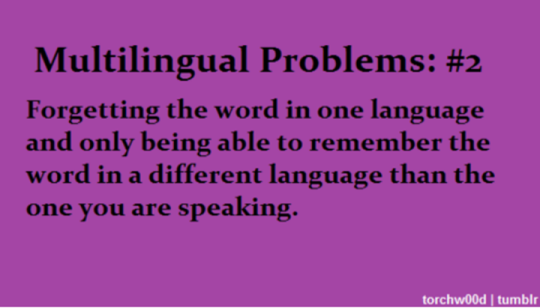Children learn to speak from their parents and friends. Immigrant families, who sometimes come to America only knowing their mother language, pass it on to their children. It was somewhat like this for the author of "Mother Tongue", Amy Tan. Her mother spoke in fragmented English to her as a child, and though that influenced the way Tan saw language and English, it did not harm her. Some would say it helped her.
To those who's first language is English, it can be hard to imagine thinking in anything else. Those who are bilingual or multilingual are even more confusing. My mom, who speaks four languages fluently and three languages well enough to get by in everyday life, sometimes mixes up phrases. She'll slip into Portuguese when she's talking to her mother, even though my Vavo has lived here for fifty years. Though I do not consider myself bilingual, I can read easily in French and understand my mom when she speaks in French and Portuguese. We were out one day and I was trying to talk to her (she's really big on speaking French at home) and I couldn't think of the right word in French, so I said the word that represented what I wanted to say. In Portuguese.
Though these are examples of how speaking more than one language affects daily life, they life that Tan describes is very different. Because my mother speaks European languages (which I find that people consider white languages) her being multilingual is seen as cool. But people like Tan's mother were looked down upon for not being able to grasp the nitpicky details of English.
Honestly, English is hard. And while oversimplifying a language isn't a good idea, neither is considering someone an English speaker if they can conjugate and come up with tenses. Language is used to communicate and that is what Tan and her mother did. Just in a different way than we might do.
For example, in paragraph six, she wrote down what her mother said to her once. It isn't edited and shows the true way her mother speaks English. She is showing that while maybe we don't completely understand what she might be saying, that she is communicating in English, while still being unique. She wanted to show that she was still communicating, even if native English speakers might not have considered her English proper.

No comments:
Post a Comment